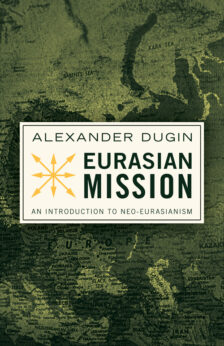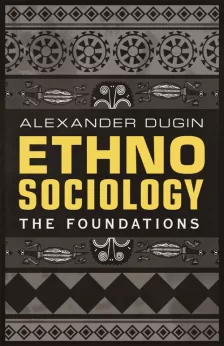There is much discussion about the decline of the West, at least in dissident circles. Attention is paid especially to the philosophical and moral aspects. Much less is said about the practical causes related to technology, business and everyday life. And even less is said about how to stop such a fall and restart the trend towards civilisational growth and prosperity.
In my book Sobering Up, which exists only in Czech, I dedicate some space to this. Here I summarise the most important points.
In the world that is already taking shape, no one will need Western banks, consultancy services or anything like that, and therefore no Western money. It will be increasingly difficult for Western countries to offer anything for which others are willing to give their raw materials, grain and the products of their factories. The logical progression, then, is a gradual descent into poverty, backwardness and barbarism, a loss of freedom and a dramatic increase in social disparities. And, of course, the gradual colonisation by other civilisations. In this, the Americans have a certain advantage, because they are being colonised by Latinos, which is in all respects less bad than Islam.
At the moment, this may not be fully apparent because the West is still living off its heritage. It is living on what has been built up over the centuries when it was the centre of production and rational science. But it adds almost nothing to it and cannot even keep what it has built going — from declining education to crumbling roads.
And things are changing faster than they first appear. In 1990, no one would have believed that China would be the world leader in advanced science in our time. They would not have believed that then-communist Czechoslovakia would move from being a builder of nuclear power plants and satellite manufacturers to a dependent country competing with Pakistan for the ability to produce simple components. Nor would he have believed that ethnically and culturally homogeneous Sweden would be overrun by Muslim gangs. And if he had, he would have expected it to take several centuries.
However, it did happen. In less than a generation.
Is it possible to stop the fall? Of course it is! Western nations and states could reverse the trend by doing the following.
First: Conditions will change so that different types of people will rise to the top than before. Speaking with the Czech anthropologist Ivo Budil, the idea is to turn from social creativity to technical creativity. How is this so essential? Technical creativity means that the mind is focused on solving a problem, and that one gets more or less unambiguous feedback: it works or it doesn’t work. Everyone from the bricklayer to the veterinarian to the space shuttle engineer has this approach, and it can be applied in most humanities disciplines. Social creativity is focused on influencing (manipulating) other people, and there is no clear objective measure of success or failure. Only: I influenced — I did not influence, I impressed — I did not impress, I convinced — I did not convince. Zjednodušeně řečeno — vláda reklamních expertů musí být nahrazena vládou inženýrů.
Second: Manufacturing, science and agriculture must be more important than banking, commerce, politics and advertising, and compensation must be accordingly. This is even if it would be completely contrary to market principles or would sweep away the current wage tariff system.
Third: Education must refocus on the growth of hard knowledge and performance and on the natural sciences. This involves not just a different curriculum, but a completely different approach. A focus on knowledge, linking theory and working with physical materials, taking experience from people with longer experience, etc. And also a more rigorous approach, where it is clear from the start that the child is being prepared to handle more complex studies (even if he or she “won’t need” this or that knowledge in life).
Fourth: National societies must become more socially homogeneous. As Christopher Lasch once wrote, differences in wealth and income can only be tolerated as long as they do not create barriers between people. Never mind that artists earn more than workers — as long as it doesn’t lead to them creating their own world and losing the ability to communicate with them. Among other things, this means that the greater the differences in wealth and income, the more we need to invest in a common culture, in maintaining common ideals and in promoting a common lifestyle.
What I am proposing is really just a repetition of how the success of industrial Europe was founded in the 19th century and what was repeated in a more modern form after the Second World War. Some European countries are trying something similar today, but elsewhere this historical experience has been completely forgotten. Probably because the social forces that hold most of the power are well aware that such a reform would endanger them. By contrast, this part of European history has been intensively studied in China. We should study it as well.
That it was about rebuilding war-torn countries? Make no mistake, the damage done over the last few decades of social and economic liberalism is no less. Nor is the amount of work that will have to be done to repair it.









